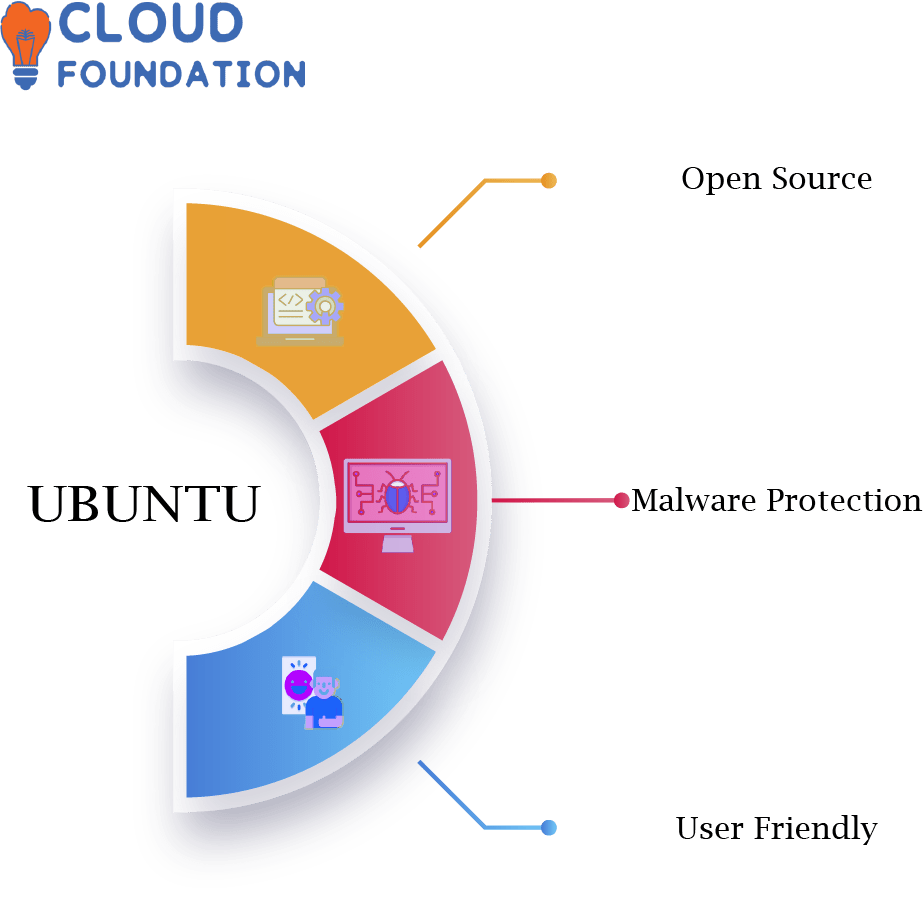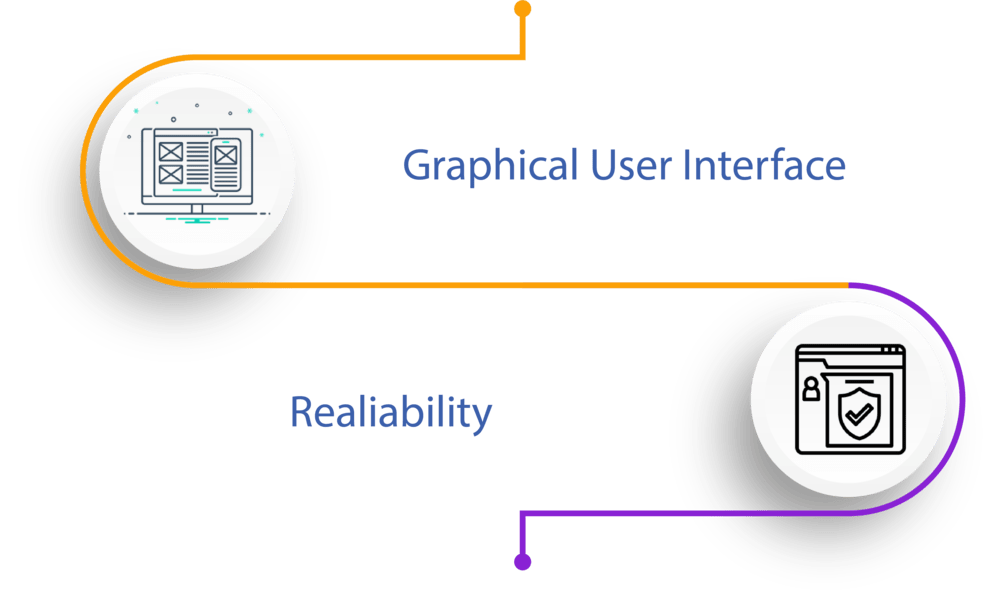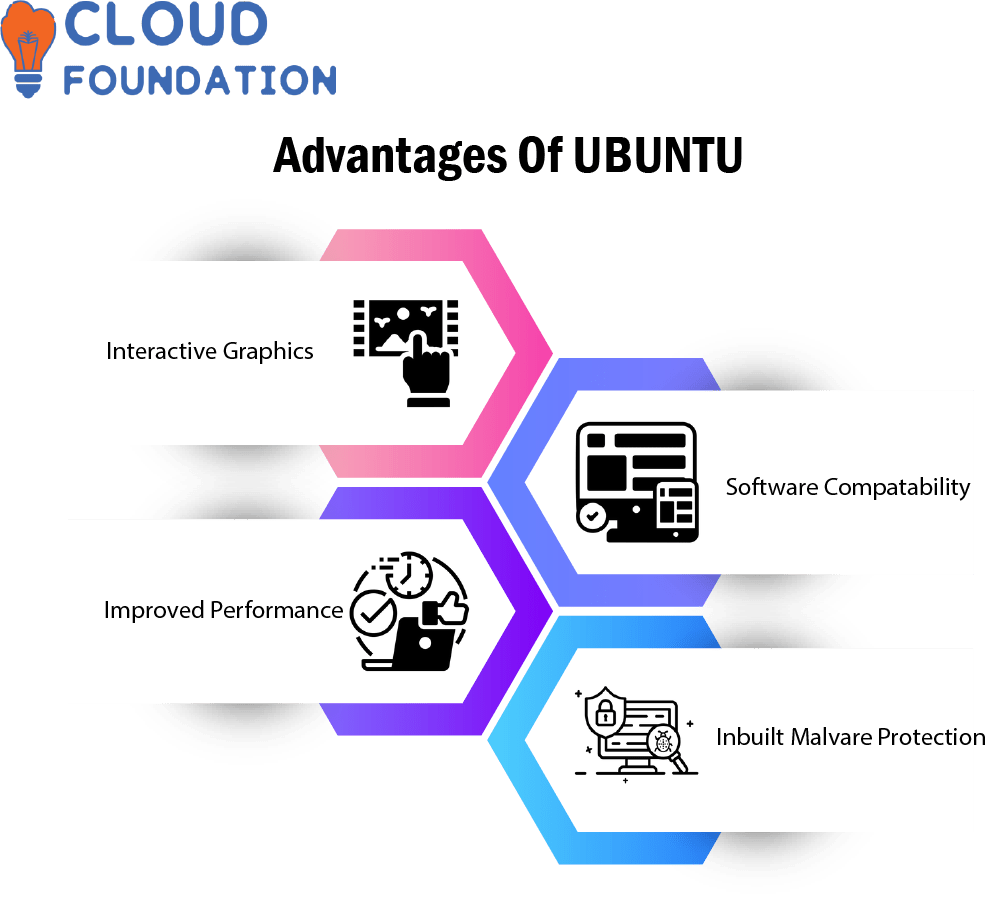What is Ubuntu?
Overview, Introduction to Ubuntu
Ubuntu is one of the world’s best-known and widely utilized operating systems, thanks to being open-source software and being easily available for everyone’s use. Canonical Ltd created Ubuntu back in 2004 as an affordable, user-friendly, secure operating system solution.
Ubuntu refers to South African philosophy of humanism toward others that includes respect and collaboration amongst humans; from this philosophy derives its name.
Ubuntu is built from Debian Linux operating system and utilizes similar architecture. It features numerous applications designed to simplify everyday operations such as word processing, emailing, online browsing and multimedia playing; plus powerful programming and visual design tools.
Ubuntu definition OR Define Ubuntu

Ubuntu has quickly become one of the world’s most widely adopted operating systems, thanks to being free and Open Source as compared to most popular alternatives. Anyone may use or modify Ubuntu at no charge and its code itself remains accessible and flexible for future changes and improvements.
Ubuntu Linux is well known as an accessible OS for newcomers and beginners alike, thanks to the User-Friendly GUI (graphical user interface) designed specifically to make its use simple and straightforward. Furthermore, installing programs is straightforward with many programs providing straightforward setup procedures.
Ubuntu features its own software center where users can access free and open source software, Compiz 3D desktop technology and more. In addition, Ubuntu boasts excellent security measures designed to shield from virus threats such as Malware Protection as well as any potential web risks that might harm a PC’s health or stability.
Ubuntu comes equipped with an inbuilt virus scanner which users can configure to frequently scan their machine for viruses, and this feature receives regular updates with security patches and new capabilities.
What does Ubuntu do, and what is Ubuntu used for?
One of Ubuntu’s greatest achievements lies in providing computer users with a user-friendly desktop experience.
Ubuntu features an intuitive GUI which makes carrying out operations simpler for newcomers without getting used to command line interface. Users will experience both productivity and enjoyment due to Ubuntu’s integration between its programs and services that come together seamlessly within this GUI environment.
Due to Ubuntu’s open development environment and lack of development restrictions or restrictive license constraints, developing for this platform has proven simpler for programmers; hence the wide array of software available for Ubuntu today that serve a range of uses and purposes.
Ubuntu provides tools that enable companies and individuals to quickly get websites online quickly. This includes both an intuitive desktop environment and multiple server services – such as MySQL database hosting and Apache web serving – all conveniently packed together into an all-inclusive web host solution.
Alongside software and apps, we also offer various security features – Firewalls, automated updates and encrypted user accounts are just a few examples – making it hard for hackers or harmful malware to infiltrate our system.
What is Ubuntu used for?

Ubuntu is becoming increasingly popular across PCs, laptops and servers alike. Based on Canonical Ltd.’s Debian operating system and designed to run predominantly free and open-source software applications.
Ubuntu Desktop edition provides users with an accessible and Versatile Operating System suitable for Web Creation, office work, gaming and home entertainment – quickly turning any machine into an effective laptop or personal computer.
Ubuntu has long been the go-to choice among businesses, groups, and individuals for operating systems. This system is well known for its dependability as well as wide array of applications – both home users and server-based businesses alike can take advantage of Ubuntu.
Ubuntu stands as one of the safest and dependable operating systems available today, giving its users an environment which provides both security and protection.
Ubuntu has long been recognized for being an exceptional option for web developers. Trustworthy and secure, its platform gives programmers all they need for programming while permitting global access from anywhere around the globe.
Ubuntu also offers various web-based services, such as Server-Side Scripting and database administration tools as well as an intuitive web browser.
How does Ubuntu work?

Ubuntu relies on its core component: the Linux Kernel to manage hardware and software resources on computers, providing an essential layer for all its users’ Reliability, safety, and effectiveness. As part of that effort to provide users with an unbreakable, safe, and effective platform. This kernel undergoes continuous improvement so as to provide reliable service across its use cases.
The Linux kernel utilizes two open source components – GNU C Library and the X Window System – as part of its foundation to form an environment in which applications may run safely, protecting programs and data against unwanted outside intrusions.
Ubuntu provides an intuitive Graphical User Interface designed to be easy-to-use and navigate, providing access to essential functions of its operating system such as browsing the web browser, emailing an address list or text editor as well as installing software programs.
Additionally, Ubuntu features many programs and services designed to simplify users’ lives. Apart from providing access to Linux kernel and user interface features, its programs include office software suites, productivity tools, media players and educational solutions – making Ubuntu an invaluable choice.
Ubuntu gives its users access to an extensive software library, making the installation of additional applications that fit their requirements or tastes simple and effortless. Furthermore, users may make customization modifications according to individual needs using its many customisation features.
Users may enhance their desktop environment’s appearance and add or delete programs as desired to tailor it for themselves, in addition to taking advantage of numerous options to modify how their system operates, including desktop skin customization options and personalized system performance settings.
Why Ubuntu, and what are the benefits of Ubuntu?
Ubuntu provides an effective operating system suitable for individuals, organizations, home computers, the government, scientific research projects and much more – strong yet free for everyone’s use!
Users of GNOME desktop OSes enjoy all the same feature-rich desktop experience offered by proprietary operating systems like Microsoft Windows or Apple’s macOS without incurring costly licensing and price tags.
It boasts an expansive library of tools and applications, an active developer community, as well as various building blocks for creating customized software solutions.
Ubuntu stands out among other operating systems because of its focus on open-source software development. All code and resources used in its creation are freely accessible to any person interested in using them – meaning no license payments need to be made for licensed applications, while still remaining extremely secure due to rigorous scrutiny by professional code reviewers and updates over time.
Furthermore, free programs help end corporate greed through supporting proprietary license sales by users themselves rather than supporting proprietary firms directly by purchasing proprietary programs themselves.
Ubuntu stands alone when it comes to adaptability; users have access to thousands of programs and packages which allow them to accomplish virtually every task with ease, including servers, workstations, laptops and the cloud.
Users may use Ubuntu on nearly all types of computer platforms–servers, workstations, laptops as well as smartphones and smartwatches are supported — making Ubuntu easily compatible with most devices including laptops desktop computers mobile phones and smartwatches.
Ubuntu stands as one of the most economical operating systems available; installation and upkeep costs are lower than for expensive proprietary apps like Adobe Premiere Pro.
Furthermore, Ubuntu features an impressive collection of tools and utilities to customize and manage user systems quickly – such as setting user privileges according to their preference – making customization and upkeep much more user friendly than otherwise possible. With so much available free resources under their fingertips quickly getting up-and-running is made even simpler!
Benefits of Ubuntu

Free Software-Ubuntu is free software; unlike many proprietary, commercial operating systems available today, its code can be seen, modified and redistributed freely allowing for transparency between developers and other users alike. As an open-source alternative it offers users more autonomy.
Simple Setup and Installation- One of the easiest open-source operating systems to set up and use quickly is Ubuntu, with its straightforward installation procedure making you up and running in no time at all. Furthermore, its software center facilitates even quicker updates by offering quick installation/updating packages quickly.
Ubuntu User Community and Support- The Ubuntu community is lively and supportive; many members are happy to assist newbies with any installation issues they encounter. Furthermore, its forums offer invaluable advice about making the most out of Ubuntu.
Flexible- Ubuntu makes customizing to meet your unique needs easy and adaptable. Install your favorite third-party applications or choose among hundreds of themes for that personalized feel and appearance.
Ubuntu Can Serve Multiple Needs- With an impressive range of applications at its disposal, Ubuntu provides tools that help manage everyday activities ranging from the email software Thunderbird and Firefox web browser, as well as LibreOffice suite for word processing and spreadsheet creation.
Improved Safety- Owing to its use of multiple security layers like AppArmor framework and firewall, Ubuntu is among the safest operating systems around. Furthermore, their dedicated team works around-the-clock on making Ubuntu safer for its users and more secure overall.
Reduced Prices- With Ubuntu, its operating system, apps and support are free – an excellent choice for those seeking to cut expenses while maintaining quality. Furthermore, many Ubuntu Software Centre software is free for download allowing even greater savings potential.
What is Ubuntu software and how to use Ubuntu?
Ubuntu’s goal is to be both user- and child-safe, offering users an interactive desktop, complete with office suite, online browsing capability, picture management options and media players as well as other useful applications and capabilities such as networking support for printing and multimedia capabilities.
Ubuntu gives its users access to numerous themes, window decorations and experiences. Furthermore, system administrators have multiple tools at their disposal like Ubiquity installer and software package manager for easier administration of systems. Furthermore, Libra offers users even more customizations to get the best from their experience with their system.
Ubuntu software ecosystem is expansive and users may access various programs through software repositories. There are multiple apps such as text editors, spreadsheet programs, word processors, web browsers and terminal emulators; as well as accessing an extensive selection of open source programs from outside sources.
Policy against non-free software integration and regular security patches and bug fixes provide users with maximum protection, in addition to various security solutions such as password managers, firewall programs and encryption tools that further bolster protection.
Ubuntu is an operating system designed for various devices that is secure and flexible – perfect for consumers at home, small companies, corporations and educational institutions alike. Ubuntu can serve as an effective personal computing or enterprise platform solution depending on your individual requirements.
How Can Ubuntu Work ?
Ubuntu can be installed either physically on a laptop or desktop computer, or run as an OS virtual environment over top of another one – making installation, removal and changes simpler for you than before. Here, we’ll focus on setting up Ubuntu on one.
Before creating a USB bootable device or burning the ISO disc, one must download an Ubuntu ISO file from either official website or BitTorrent client and follow provided instructions to complete these processes.
Once your installation media has arrived, depending on the make and model of your device you may require configuring BIOS/UEFI to enable installation. Usually this means rebooting it and accessing its setup choices – similar to how Windows BIOS provides access. Each make and model may differ in this regard so refer to your handbook for detailed guidance.
After entering the setup screen, navigate directly to the boot selection menu to choose your boot source (typically indicated as “removable devices” or something similar). Choose your bootable disc/USB as your boot source once connected and confirm its connectivity before making additional modifications as required – sometimes necessary, usually not necessary). Installation procedures will start once restarted!
Once the installation process has begun, you can choose both language and location preferences for installation. Again, specific procedures vary significantly by make/model so please refer to your device handbook for guidance. Choose your storage disc(s), partition(s), then “Install Ubuntu”. Afterward choose “Done Installing Ubuntu”. After this has happened wait a moment while Ubuntu installs onto your device.
Once Ubuntu has been installed, you may begin by customizing your display, creating user accounts and downloading programs from Ubuntu Software Centre.
Advantages of Ubuntu

Interactive Graphics: Ubuntu stands out among competing operating system platforms by virtue of its user-friendly GUI or user interface (UI), designed for ease of use by even total beginners by eliminating unnecessary steps in performing certain activities.
This interface features a system menu, dock containing shortcuts to several system utilities and desktop icons providing quick access to frequently used apps – creating an effortless experience perfect for learning operating system navigation! These elements combine together for an engaging experience which welcomes those needing an introduction into OS navigation.
Compatibility with Software: Ubuntu has earned itself an outstanding reputation when it comes to software compatibility or running apps from other operating systems, saving users both time and hassle by eliminating separate installation procedures for programs from different OSs.
Users no longer need to manually search for individual programs as an APT repository contains thousands of them that users may access without searching separately; additionally Ubuntu contains numerous built-in utilities which make life much more accessible such as LibreOffice (a free alternative to Microsoft Office), GIMP (picture editing program) Rhythmbox (music player), among many more!
Security: Users seeking an alternative computer operating system often turn to Ubuntu for its wide array of security measures that help defend them against potential attackers and protect files and personal information, including application firewalls, antivirus tools, intrusion detection systems and file encryption features.
In order to keep harmful malware away, Ubuntu also comes equipped with an impressive secure boot procedure allowing only trusted applications from being loaded onto their machines at boot time.
Performance Improvement: Ubuntu offers various options that improve system performance for its users. One such is automatic system update which makes sure users stay current with any security or bug updates available to them, and its low memory consumption rate requires few hardware resources – making it ideal for computers without enough RAM or CPU capacity.

Ankita
Author
